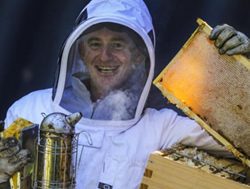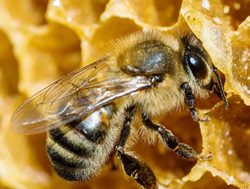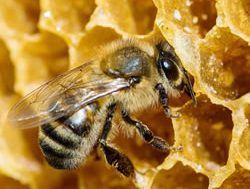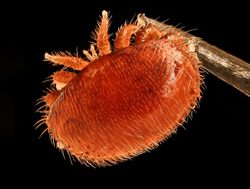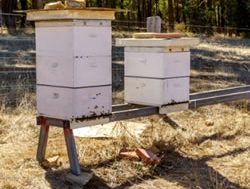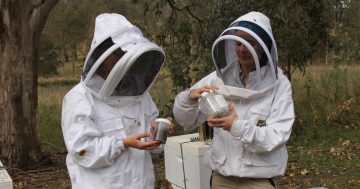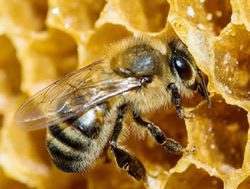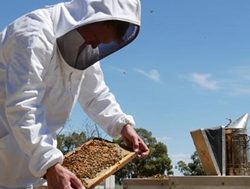 Biosecurity Queensland is using artificial intelligence in an effort to seek out the destructive bee pest, Varroa destructor at the Port of Townsville.
Biosecurity Queensland is using artificial intelligence in an effort to seek out the destructive bee pest, Varroa destructor at the Port of Townsville.
A section of the Department of Agriculture and Fisheries, Biosecurity Queensland has introduced the Purple Hive Project, to monitor for the pest which has the ability to cause destruction to the agriculture industry.
The Purple Hive Project uses artificial intelligence to scan honey bees for Varroa destructor, a mite which was recently found in Australia for the first time in NSW.
General Manager for Assets and Environment at the Port of Townsville, Mark McNeil said the port had been identified as a critical partner for the Purple Hive Project as a possible high-risk pathway for bee pests to enter Queensland.
“Bees can enter Australia on vessels or in freight that can spread pests like Varroa destructor, which can kill off honey bees and in turn have a crippling effect on plants which require the pollinators to reproduce,” Mr McNeil said.
“Townsville is at the forefront of the fight against Varroa mite following detections of Varroa jacobsoni in 2016, 2019 and 2020.”
He said that while these incursions had been officially eradicated, the work to ensure Queensland remained varroa mite free continued.
“Townsville is Australia’s largest sugar export port, and we also handle significant sugar volumes at Lucinda Port, so we are acutely aware of the importance of protecting the agriculture industry and its significant contribution to the region’s economy,” Mr McNeil said.
Program Manager at the Department of Agriculture and Fisheries, Rob Stephens reiterated the importance of mitigating the risks of varroa mite coming into Queensland.
“The Varroa Mite Prevention and Preparedness Program is working closely with industry and beekeepers to make sure the mite doesn’t ever get a foothold in Queensland,” Mr Stephens (pictured) said.
“Queensland beekeepers are on the front line for early detection. We are asking all the State’s beekeepers to be proactive and check their hives for varroa mite.”
Detailed information on how to check hives and report results can be found at the Department of Agriculture and Fisheries at this PS News link.


